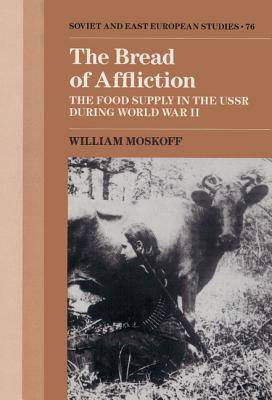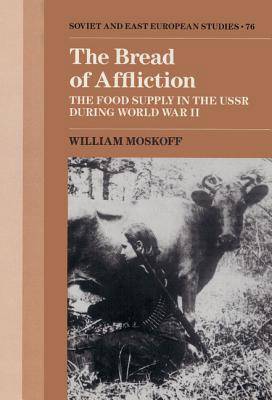
Door een staking bij bpost kan je online bestelling op dit moment iets langer onderweg zijn dan voorzien. Dringend iets nodig? Onze winkels ontvangen jou met open armen!
- Afhalen na 1 uur in een winkel met voorraad
- Gratis thuislevering in België vanaf € 30
- Ruim aanbod met 7 miljoen producten
Door een staking bij bpost kan je online bestelling op dit moment iets langer onderweg zijn dan voorzien. Dringend iets nodig? Onze winkels ontvangen jou met open armen!
- Afhalen na 1 uur in een winkel met voorraad
- Gratis thuislevering in België vanaf € 30
- Ruim aanbod met 7 miljoen producten
Zoeken
€ 133,95
+ 267 punten
Uitvoering
Omschrijving
This book tells how the Soviet Union fed itself after the invasion by the Germans during World War II. The author argues that central planning became much less important in feeding the population, and civilians were thereby forced to become considerably more self reliant in feeding themselves. A rationing system was instituted soon after the war began, but quickly became irrelevant because of the chronic food shortages. The breakdown in central supplies of food was accompanied by the diminished importance of the ruble, which in many places was replaced by bread and clothing as the medium of exchange. Although the Soviet army was given high precedence over civilians, the author also shows that the population living under German occupation was much worse off than were Soviet civilians living in the rear. In addition to extensive use of American and German archives from the war period, the author interviewed more than thirty Soviet emigrés who survived the war.
Specificaties
Betrokkenen
- Auteur(s):
- Uitgeverij:
Inhoud
- Aantal bladzijden:
- 274
- Taal:
- Engels
- Reeks:
- Reeksnummer:
- nr. 76
Eigenschappen
- Productcode (EAN):
- 9780521374996
- Verschijningsdatum:
- 26/10/1990
- Uitvoering:
- Hardcover
- Formaat:
- Genaaid
- Afmetingen:
- 162 mm x 239 mm
- Gewicht:
- 498 g

Alleen bij Standaard Boekhandel
+ 267 punten op je klantenkaart van Standaard Boekhandel
Beoordelingen
We publiceren alleen reviews die voldoen aan de voorwaarden voor reviews. Bekijk onze voorwaarden voor reviews.











